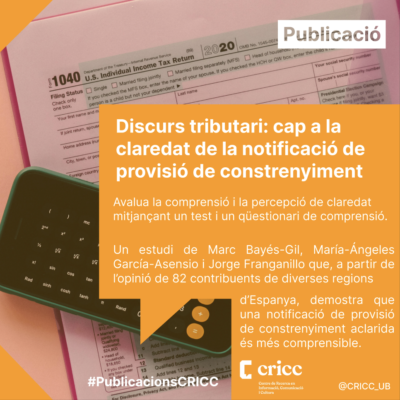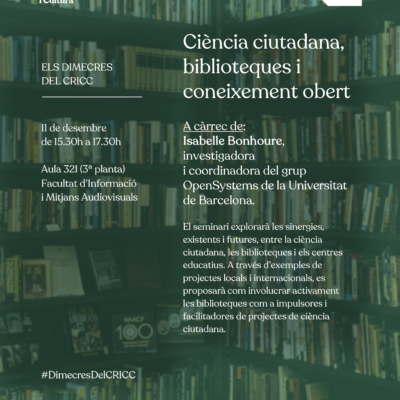New publication by Lydia Sanchez, Sergio Villanueva and Adrien Faure, CRICC researchers, on critical thinking.
In today’s democratic societies, the different phenomena of information disorders, as well as the addictive and harmful use of content and media, especially digital media, have only increased the need for training in this area.
The aim of this work is to study the incidence of political positioning and the tendency to populism on the information literacy index, the self-perception of critical thinking (APC) and the ability to detect fake news, in students of the Master’s Degree in Teacher Training in Secondary Education in Spain; an essential group in the formation of future citizens capable of critically using information and media content.
The data have been collected through a questionnaire, applied to 716 students of this master’s degree, in 14 universities in Spain. These data were statistically analyzed using SPSS.
The results show that populist people have a lower level of information literacy than non-populist people; also, it is observed that people who are politically further to the left have a better level of APC and a higher number of hits in detecting fake news, while populism does not seem to influence either of these last two variables.
It highlights the need to address these dimensions separately, in teacher training, and that information literacy and critical thinking, although valuable, do not guarantee complete protection against misinformation and populist discourse due to the preeminence of emotions in human cognition.
Sánchez, L., Villanueva Baselga, S., & Faure-Carvallo, A. (2024). Ideología política, populismo, alfabetización informacional y pensamiento crítico: desafíos para el futuro profesorado. Revista Latina De Comunicación Social, (82). https://doi.org/10.4185/rlcs-2024-2268







